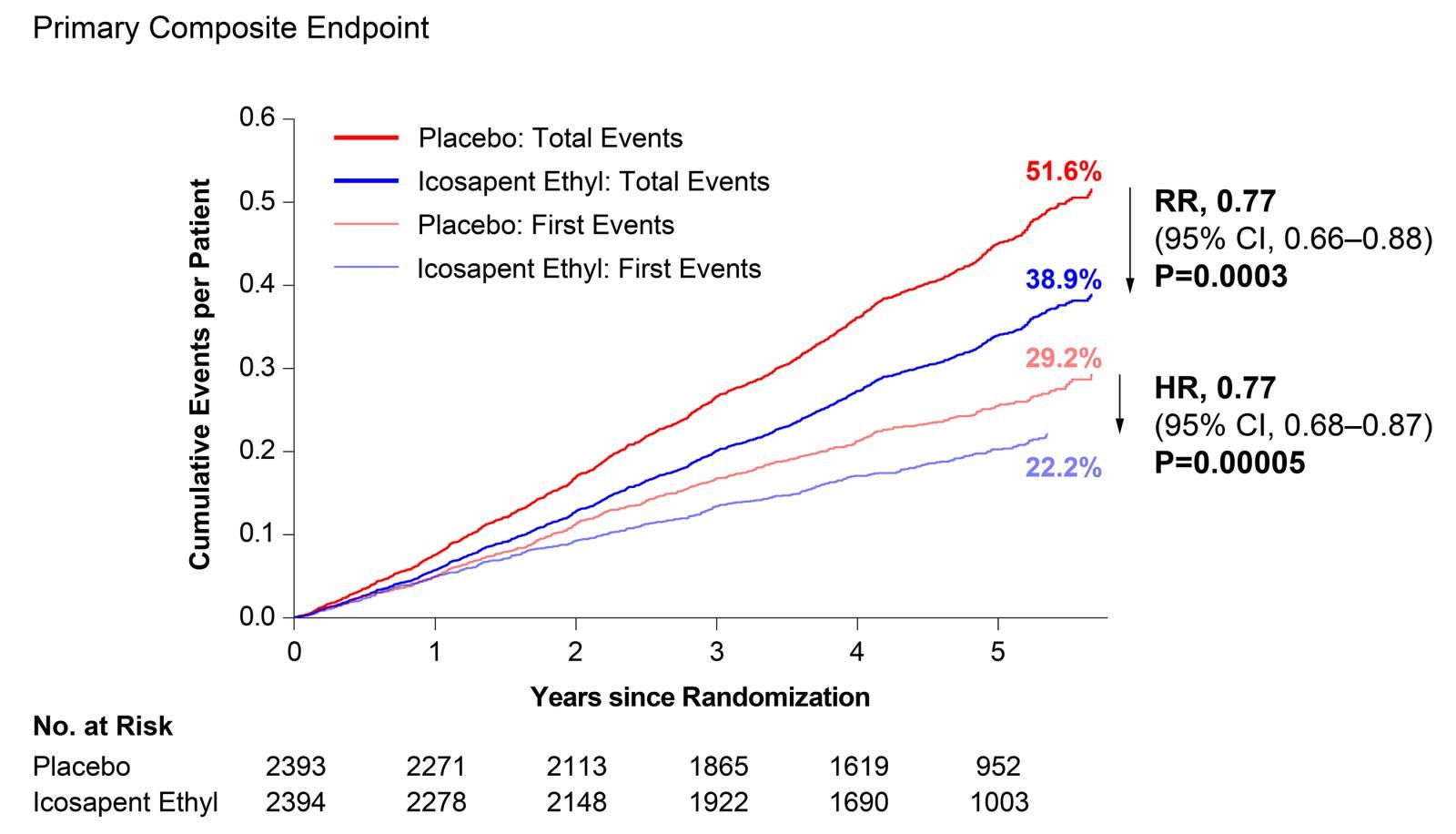- Center on Health Equity & Access
- Clinical
- Health Care Cost
- Health Care Delivery
- Insurance
- Policy
- Technology
- Value-Based Care
Cardiovascular Benefits of Vascepa Greater for Those With Diabetes, New REDUCE-IT Data Show
When it comes to diabetes, lead study author Deepak L. Bhatt, MD, MPH, said clinicians and payers should weigh the considerable costs of what happens when a patient suffers a heart attack or stroke when deciding on a treatment regimen.
The benefits icosapent ethyl (IPE), a purified fish oil derivative sold as Vascepa, are greater for those with diabetes than those with cardiovascular (CV) risk who do not have diabetes, according to results presented today at the 80th American Diabetes Association (ADA) Scientific Sessions.
The sessions are in a virtual format due to coronavirus disease 2019.
REDUCE-IT DIABETES, the latest wave of data from the REDUCE-IT trial, showed that patients in the trial with diabetes, who were all treated with statins along with other therapy for glycemic control, saw absolute risk reductions of 7% in the first CV event and 12.7% in total events, based on a 5-point MACE (major cardiovascular events, including CV death, myocardial infarction, stroke, coronary revascularization, or unstable angina).
This translated into a relative risk reduction of 23% (RR 0.77, 95% CI: 0.66-0.88, P = .0003), and a hazard ratio (HR) of 0.77 (95% CI: 0.68-0.87, P = .00005). (See FIGURE below.)
Of the 8179 patients in the overall REDUCE-IT trial, 4787 had diabetes. The trial design called for 70% with established atherosclerotic disease and 30% with diabetes or other CV risk factors, and 58% ended up having diabetes. Patients with diabetes were more likely to have events compared with the overall study population: in the initial results, which looked at first events, 17.2% of the patients had a primary event in the IPE compared to 22% in the placebo group, for an absolute between group difference of 4.8%. In these latest results, among those with diabetes, 22.2% in the IPE group had a first event, compared with 29.2% in the placebo group.
In an interview with The American Journal of Managed Care®, lead study author Deepak L. Bhatt, MD, MPH, of Brigham and Women’s Hospital and Harvard Medical School, said the benefits of IPE, given twice daily in doses of 2 g each, increased along with the risk level of each patient group. Bhatt broke the study population into 3 categories and said the absolute risk reductions were as follows:
- Patients with diabetes but without CV disease saw an absolute risk reduction of 4%
- Patients without diabetes but with established CV disease saw an absolute risk reduction of 6%
- Those with diabetes and established CV disease saw an absolute risk reduction of 10%.
Of note for the ADA audience, Bhatt said, the A1C levels were 7% on average, “So, there was pretty good glycemic control in these patients in this trial—and in fact, the background medical therapy in the trial in general was excellent.” Besides statins, most patients with diabetes were being treated with multiple diabetes therapies, he said.
Even with aggressive care, patients with multiple risk factors are more likely to have events, Bhatt said, and IPE was shown to make these events less likely.
IPE was developed for patients with high triglycerides, and until recently was approved only for that use. FDA approved a cardiovascular indication late last year, after REDUCE-IT showed a 25% reduction in first events and a 30% reduction in first and future CV events.
Asked where the fish oil derivative fits into the treatment regimen relative to sodium glucose co-transporter 2 (SGLT2) inhibitors—which were developed to treat type 2 diabetes but have been found to reduce heart failure and renal decline—Bhatt said the 2 therapies are “complementary, even synergistic.”
While these new results show clear benefits of IPE for people with diabetes and cardiovascular disease, he said, “It wouldn’t be right to pigeonhole the drug to say, ‘Oh, it’s only for those with diabetes.’ It is also for those who have established cardiovascular disease, but among those with diabetes—with or without established cardiovascular disease, assuming they have triglycerides that are not in optimal range—the drug does seem to provide benefit beyond other evidence-based therapies.”
When it comes to diabetes, Bhatt said clinicians and payers should weigh the considerable costs of what happens when a patient suffers a heart attack or stroke when deciding on a treatment regimen. Leaving a medication out of a treatment plan may not save money in the long run, he said.
“Diabetes is a powerful risk amplifier,” Bhatt said. “Especially when patients already have high cardiovascular risk because of multiple other risk factors or established atherosclerosis, you’ve really got to throw the kitchen sink at them.”
FIGURE. REDUCE-IT DIABETES

Source: American Diabetes Association
Reference
Bhatt DL, Brinton EA, Miller M. Substantial cardiovascular benefit from icosapent ethyl in patients with diabetes: REDUCE-IT DIABETES. Presented at: 80th American Diabetes Association Scientific Sessions; June 12-16, 2020. Abstract 4-LB.
What It Takes to Improve Guideline-Based Heart Failure Care With Ty J. Gluckman, MD
August 5th 2025Explore innovative strategies to enhance heart failure treatment through guideline-directed medical therapy, remote monitoring, and artificial intelligence–driven solutions for better patient outcomes.
Listen
